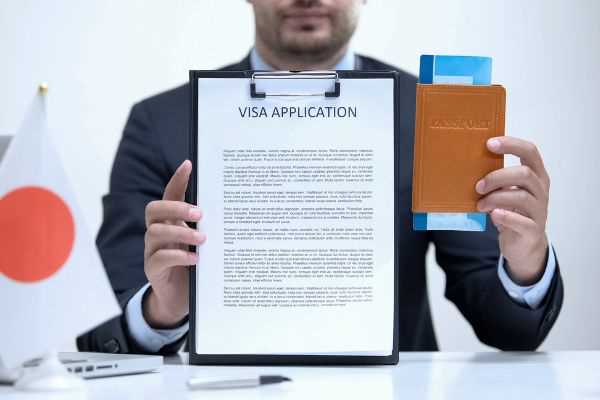Can honorary consuls exercise their consular functions for economic purposes?
Can honorary consuls exercise consular functions for economic purposes?
Pursuant to Article 3 of Decree 26/2022/ND-CP stipulates as follows:
“Article 3. Principles for performing consular functions
1. Honorary consular offices and Honorary Consulates are only allowed to perform consular functions in certain consular areas in Vietnam after they have been granted the Honorary Consular Acceptance Certificate by the Vietnamese Ministry of Foreign Affairs. basis in accordance with international law and Vietnamese law.
2. Honorary consular officers perform some or all of the consular functions provided for in the 1963 Vienna Convention on Consular Relations, as authorized by the sending State and approved by the Ministry of Foreign Affairs.
3. Honorary consular officers perform consular functions not for profit or economic benefit but to promote relations between the sending State and Vietnam.
4. Honorary consular officers may concurrently perform consular functions authorized by the sending State and carry out profitable professional or commercial activities of an individual in Vietnam; accordance with the provisions of international treaties to which the sending State and Vietnam are parties and the laws of Vietnam.
5. Honorary consulates and consular offices are not entitled to the privileges and immunities accorded to Honorary Consular Officers outside the scope of consular functions or when performing their business or commercial activities. individuals in the territory of Vietnam and may not use the honorary consular title for personal and commercial professional activities or outside the scope of consular functions.”
Accordingly, honorary consulates and honorary consular offices shall perform their functions and duties according to the above-mentioned principles.
As such, honorary consuls may not perform their consular functions for economic purposes.

Can honorary consuls exercise their consular functions for economic purposes?
How long does it take to establish an Honorary Consulate in Vietnam?
Pursuant to Article 4 of Decree 26/2022/ND-CP stipulating the procedures and order for establishing an honorary consular office in Vietnam as follows:
“Article 4. Approval of the establishment of an honorary consular post
1. The sending country sends a note directly to the Ministry of Foreign Affairs requesting approval for the establishment of a foreign honorary consular office in Vietnam. The note clearly states the need for the establishment of an honorary consular office in Vietnam, the proposed consular area and the name of the honorary consular office.
2. Within 10 days from the date of receipt of the note, the Ministry of Foreign Affairs shall send a written request to the Ministry of Public Security, the Ministry of National Defense and relevant agencies on the policy of allowing the establishment of an honorary consulate of the country. out in Vietnam. The opinions of the agencies shall be sent to the Ministry of Foreign Affairs within 15 days from the date of receipt of the documents of the Ministry of Foreign
3. Within 30 days after receiving written opinions from the Ministry of Public Security, the Ministry of National Defense and relevant agencies, the Ministry of Foreign Affairs shall decide to permit the establishment of an honorary consular office on the basis of the provisions of law, the extent of consular relations in the region; nature of relations and ensuring national security, social order and safety, in accordance with international laws and practices.
In the event that the relevant agencies have different opinions on this issue or the establishment of an honorary consular office needs further consideration from the perspective of security and defense, the Ministry of Foreign Affairs shall report to the Prime Minister. decision review.
4. The Ministry of Foreign Affairs shall notify the sending State of its decision on approval or disapproval of the establishment of a foreign honorary consular office in Vietnam.”
Accordingly, the order to approve the establishment of an honorary consular office in Vietnam shall comply with the above provisions.
Thus, according to the above regulations, from the time of receiving the note that the sending country sends directly to the Ministry of Foreign Affairs to request the establishment of a foreign honorary consular office in Vietnam, it will take about 55 days to receive the certificate. accept the proposal.
Honorary consular approval procedure in Vietnam?
Pursuant to Article 5 of Decree 26/2022/ND-CP stipulates as follows:
“Article 5. Order and procedures for honorary consular approval
1. After receiving the approval of the Ministry of Foreign Affairs on the establishment of an honorary consular office in Vietnam, the sending State shall send a note to the Ministry of Foreign Affairs requesting approval of the honorary Consular candidate, enclosed with 01 set of documents. profile of the Honorary Consular in accordance with Article 7, the intended location of the place of office of the Honorary Consular Office and the consular functions authorized by the sending State.
In case of necessity, the Ministry of Foreign Affairs may request the sending State to supplement other relevant information.
2. Within 10 working days from the date of receipt of the note and complete and valid documents, the Ministry of Foreign Affairs will discuss with the Ministry of Public Security, the Ministry of National Defense and relevant agencies about the consular approval. honor to ensure the requirements of foreign affairs, security and defense, social order and safety, economy, culture and education. The opinions of the agencies shall be sent to the Ministry of Foreign Affairs within 15 days from the date of receipt of the documents of the Ministry of Foreign Affairs.
Within 30 days after receiving written comments from the Ministry of Public Security, the Ministry of National Defense and relevant agencies, the Ministry of Foreign Affairs will decide whether to accept or not to accept the nominee to be the Honorary Consul. attend.
3. After approving the Honorary Consular Candidate, the Ministry of Foreign Affairs shall notify in writing the sending State and request the sending State to submit a copy of the Honorary Consular Credential for the Ministry of Foreign Affairs to issue the Consular Acceptance. honour. The two sides discussed and agreed on the time to receive the Consular Credential and award the Honorary Consular Acceptance.
4. After receiving the Honorary Consular Credential and within 5 days after awarding the Honorary Consular Acceptance, the Ministry of Foreign Affairs shall notify the competent authorities in Vietnam of information about the Consular Department. The newly approved sending State honorifics in Vietnam include information about the Honorary Consul's individual, consular area, consular functions and term of office.
5. The sending country may send a note to the Ministry of Foreign Affairs to exchange opinions on the establishment of a foreign honorary consular office in Vietnam and at the same time requesting approval of the honorary Consular candidate together with the application file. Honorary Consul's resume. In this case, the enclosed dossier must conform to the provisions of Clause 1, Article 4 and Clause 1, Article 5 of this Decree.
6. Where the sending State has been approved to establish an Honorary Consular Office in Vietnam and appoints a new person to act as Honorary Consul, it is not required to exchange opinions with the Ministry of Foreign Affairs as prescribed in Article 4. of this Decree.”
Thus, the order of honorary consular approval in Vietnam is carried out in accordance with the above provisions.
LawNet
